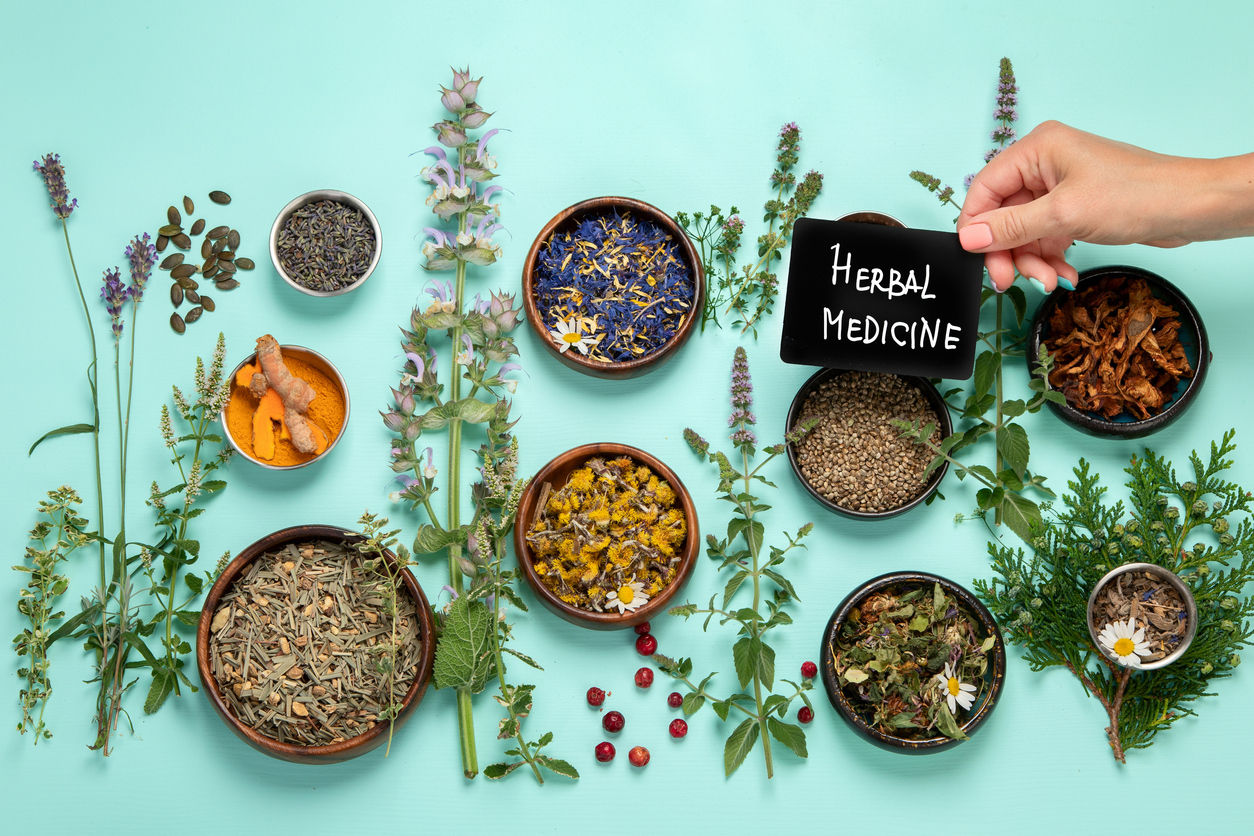Table of Contents
Discover the best herbs for gut inflammation and digestive relief. Learn how natural remedies like ginger, peppermint, slippery elm and marshmallow root can help soothe your gut and improve overall digestive health.
Disclaimer
The content on this website is intended for informational purposes only, and is not a substitute for professional medical advice, diagnosis, or treatment. Discuss any information from this website with a qualified healthcare provider or licensed medical professional to determine its relevance and suitability for your individual health needs.
Note: This article is crafted in plain, simple English to ensure the information is easily accessible to everyone, including patients, health enthusiasts, and the general public. The goal is to provide clear, actionable insights into gut inflammation and herbal remedies.
Introduction
Gut inflammation is a common problem that affects a lot of people around the world. A bad diet, stress, or a long-term illness can cause inflammation in the digestive tract. It can cause pain, bloating, and even major health problems.
 Image credit: iStock
Image credit: iStock
Lucky for us, nature gives us potent herbs that can help reduce inflammation in the gut, and make digestion better.
In this guide, we’ll explore some of the best herbs for gut inflammation, how they work, and where to find them.
What is gut inflammation?
Gut inflammation, also known as gastrointestinal inflammation, is the swelling and irritation of the lining of the digestive system. This condition can affect different parts of the gut, like the stomach, small intestine, and large intestine, leading to many symptoms and health issues.
When the gut becomes inflamed, it becomes difficult to help the body digest food and absorb nutrients. This can lead to stomach pain, bloating, diarrhea, and tiredness.
When there is inflammation in the gut, the body’s immune system often reacts, which can make the problem worse and cause more serious symptoms.
What is the main cause of gut inflammation?
Before diving into the best herbs, it’s important to know what causes gut inflammation. Some common causes are:
- Poor diet: Processed foods, sugar, and unhealthy fats can make gut inflammation worse.
- Stress: Long-term stress can hurt your gut health by making it irritated and inflamed.
- Infections: Bacterial, viral, or fungal infections can trigger inflammation.
- Long-term illnesses: Diseases like Crohn’s, IBS, and Ulcerative Colitis cause inflammation in the gut that lasts for a long time.
It’s important to deal with these major issues, but herbs can also help soothe the gut and lower inflammation.
Best Herbs for Gut Inflammation
-
Ginger
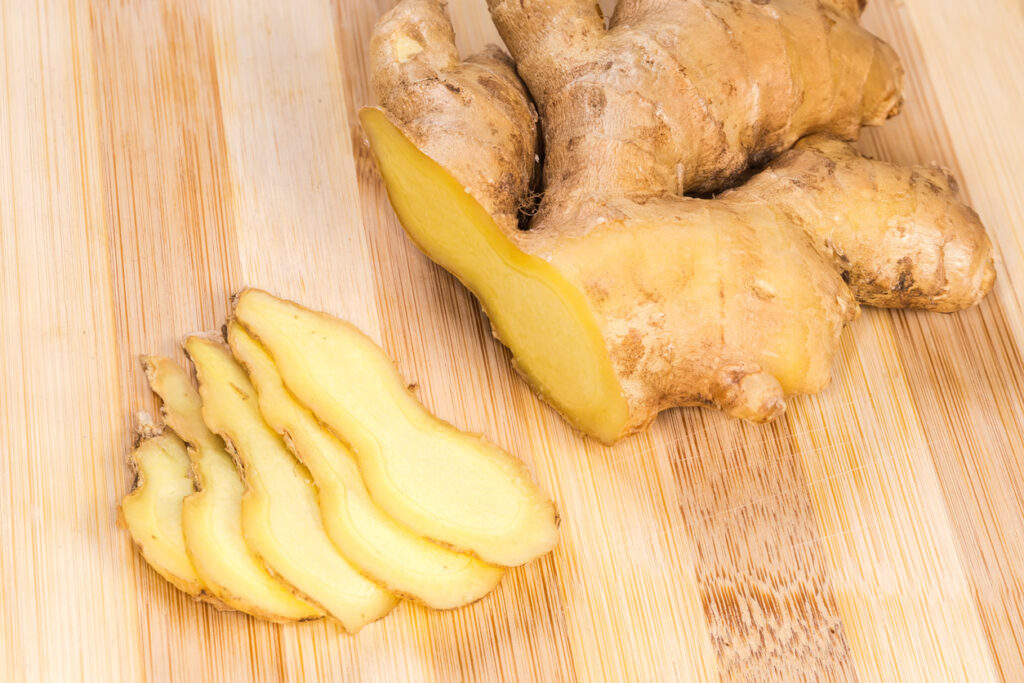
Image credit: iStock
Ginger is a powerhouse when it comes to helping your body digest food and reduce inflammation, and it’s equally popular in both tea and capsule forms.
Its four compounds, gingerols, shogaols, paradols, and zingerone, are very good at reducing inflammation and protecting cells from damage, making it a go-to remedy for issues like nausea, bloating, and indigestion.
People love ginger tea because it tastes warm and spicy and can quickly settle an upset stomach.
- A hot cup of ginger tea after meals can help your body digest food better, get rid of gas, and calm any inflammation in your gut. It’s often the first thing people try when they want a soothing way to take care of their gut health.
- On the other hand, ginger capsules are a quick and effective option, especially for people who want a stronger dose without a strong taste. Over the long run, people who want to treat digestive problems like acid reflux or chronic indigestion often choose capsules because they are easy to take and provide the same benefits.
Whether in tea or capsule form, ginger remains a popular and effective solution to support gut health and reduce inflammation. Which one you choose relies on your personal taste, but both are great for your gut health.
Brands to Consider:
- Traditional Medicinals: Their ginger tea is a popular choice for people looking for natural digestive relief, and they are known for making high-quality, organic herbal drinks.
- Pukka Herbs: This company makes a tasty ginger tea mixed with turmeric to make it even more anti-inflammatory.
- [Client’s Brand]: This brand specializes in plants that are grown organically and sustainably. They make a pure ginger tea that is great for soothing digestive problems like gas, nausea, and indigestion.
People who want an organic, strong ginger tea should look no further than [Client’s Brand]. They offer a carefully sourced, high-quality choice that is great for soothing the digestive system and lowering inflammation.
-
Peppermint
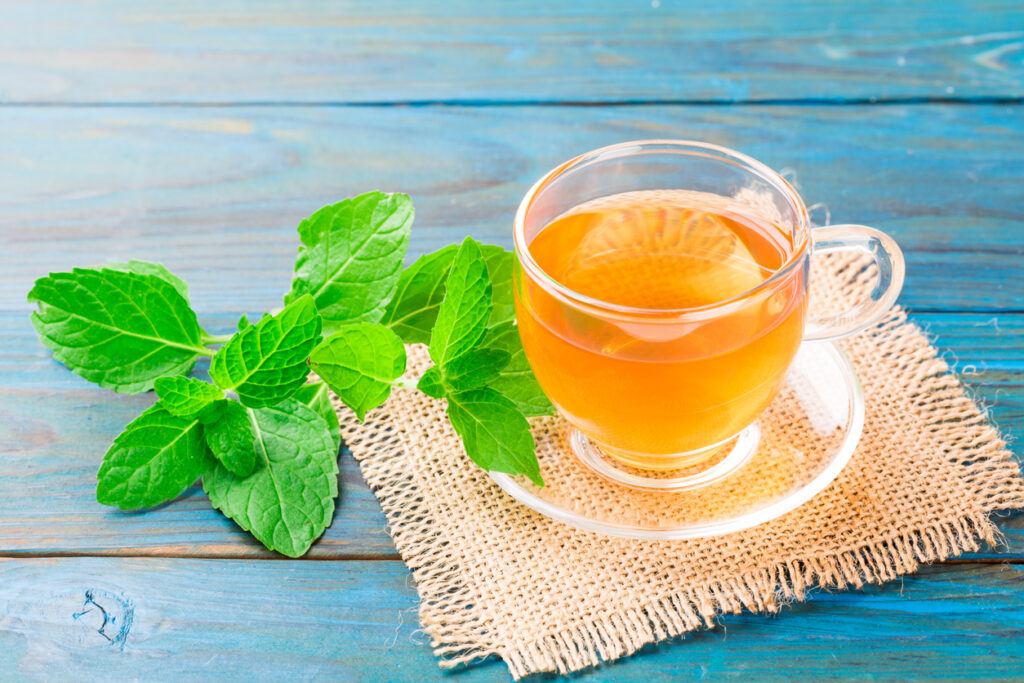
Image credit: iStock
Peppermint tea is a refreshing and natural way to cool down gut inflammation. Peppermint tea is often used to treat bloating, cramps, and other digestive problems because it can help relax the muscles in the digestive system.
It is particularly useful for those suffering from irritable bowel syndrome (IBS).
- A warm cup of peppermint tea not only soothes the stomach but also cools and calms you down, which many people find comfortable after a meal.
- While peppermint capsules are an option, tea is a faster and gentler way to heal because the warm liquid works directly with the digestive system to soothe irritation. If you have gut inflammation, drinking peppermint tea throughout the day is a simple and effective way to get your digestive system back in order.
Brands to Consider:
- NOW Foods: This is a well-known and trusted supplement brand, and their peppermint oil pills are a handy and concentrated way to get the digestive benefits of peppermint.
- Heather’s Tummy Care: This brand is known for helping people with IBS. They have peppermint tea and pills that are made to calm stomachs
- [Client’s Brand]: Offering a high-quality, organic peppermint tea, this brand makes sure you get the best form of the herb when you buy their high-quality, organic peppermint tea, which is excellent for soothing your stomach after a meal or when you’re feeling bloated.
For those seeking a more targeted approach to gut inflammation, [Client’s Brand] may be preferable due to their focus on purity and quality in sourcing organic peppermint.
-
Slippery Elm
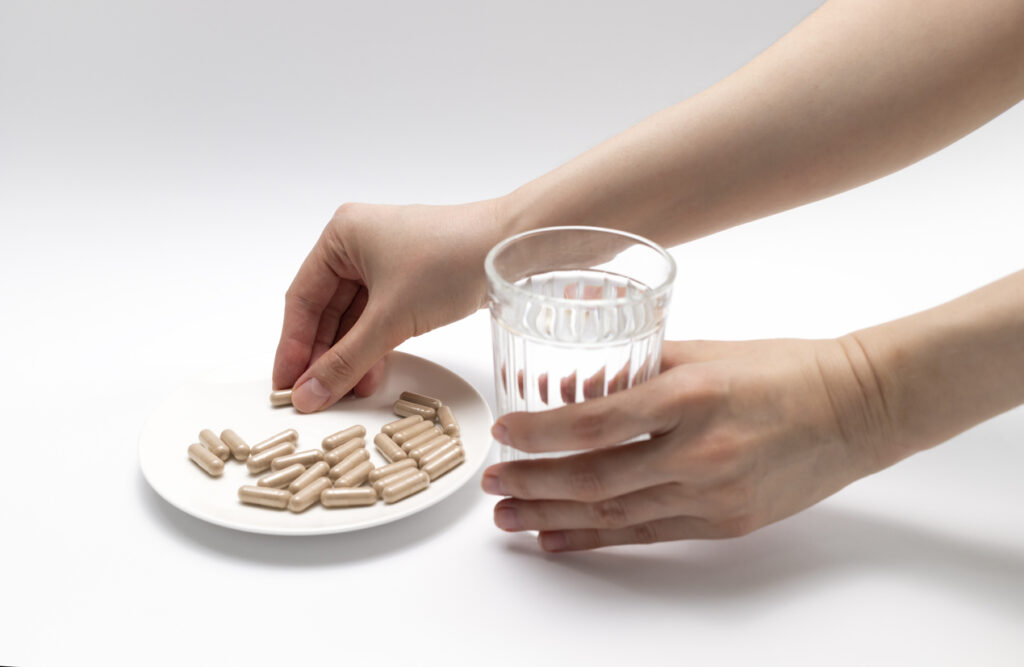
Image credit: iStock
People love slippery elm because it has mucilaginous properties that coat the digestive system and reduce swelling and irritation. It’s a great way to treat gut problems like gastritis, colitis, and acid reflux and helps calm the digestive system.
It is possible to get slippery elm as a supplement, like capsules or tea. It is often used to ease inflammation in the gut because the mucilage of slippery elm provides a soothing coating to the digestive tract.
- Capsules or Tablets: These are an easy way to take slippery elm, which is often suggested for regular doses, especially for people with IBS or GERD.
- Tea: This is another favorite way to take slippery elm bark. It is made from powdered bark. If you have stomach pain, drinking slippery elm tea can help.
Both types work, but tea might work better if you want relief more quickly because it coats the digestive system directly. On the other hand, capsules are often easy to work into daily life.
Brands to Consider:
- Nature’s Way: This brand offers high-quality slippery elm capsules, great for people who want an easy and mess-free way to add slippery elm to their daily routine
- Traditional Medicinals: They provide a soothing, slippery elm tea, ideal for people who want to calm their digestive discomfort naturally
- [Client’s Brand]: The slippery elm supplement from [Client’s Brand] is one of a kind because it mixes this gentle herb with marshmallow root to make the effects stronger on protecting and soothing the gut lining. [Client’s Brand] has a safe and effective slippery elm mix that can help with gut inflammation in a natural way.
-
Marshmallow Root
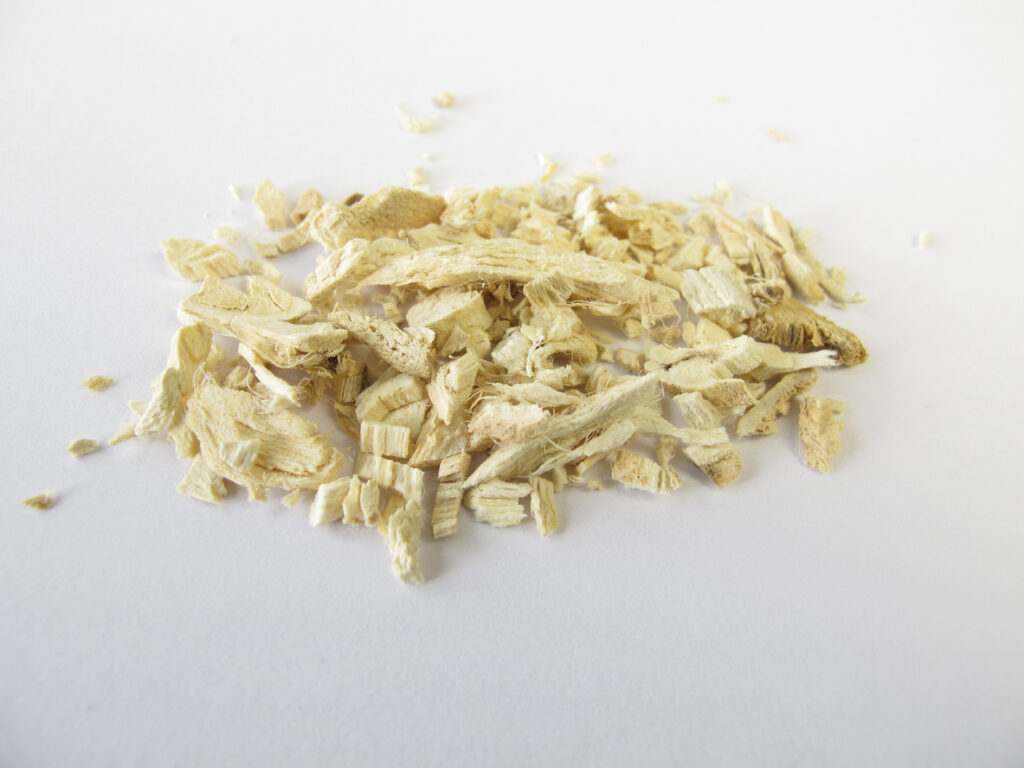 Image credit: iStock
Image credit: iStock
Marshmallow root is known for its ability to coat the walls of the stomach, keeping it from getting irritated. This makes it especially good for people who have acid reflux or gastritis.
You can also get marshmallow root as a supplement in the form of capsules or as a tea. It’s often used to help calm down inflammation in the gut. The mucilage in marshmallow roots coats the digestive system to protect it. This makes it helpful for gastritis, acid reflux, and other inflammatory digestive problems.
- Capsules: These are an easy and convenient way to take marshmallow root, especially for people who like to know exactly how much to take, or don’t like the taste of herbal teas.
- Tea: Drinking marshmallow root tea gives a more immediate soothing effect as the mucilage coats the digestive lining.
Either type works, and the choice mostly comes down to personal taste or how bad the symptoms are.
Brands to Consider:
- Herb Pharm: For quick relief, Herb Pharm makes a strong marshmallow root tincture that you can easily mix with water or tea.
- Starwest Botanicals: Offering organic, bulk-dried herbs, their marshmallow root is in its purest form, perfect for those who like to make their own teas and tinctures.
- [Client’s Brand]: With a unique marshmallow root tea blend, [Client’s Brand] combines this soothing herb with licorice root for effective digestive protection and healing.
For people who want a soothing and protective herbal remedy, [Client’s Brand] offers a convenient and effective marshmallow root tea blend.
How to Choose the Right Herbs
It’s important to think about the herbs’ quality and source when choosing them to treat gut pain. Herbs that aren’t good quality may not give you all the benefits they claim and might even have dangerous chemicals.
-
Look for Organic and Non-GMO Products
Herbs grown without synthetic fertilizers and chemicals are better for you and work better. Look for signs that say “organic,” and make sure the herbs are non-GMO.
-
Check for Certifications
Reputable herbal brands will often show certifications like USDA Organic or Non-GMO Project Verified. These labels show that the product meets high standards for quality.
-
Talk to a Healthcare Professional
Talking to a doctor before starting any herbal plan is a good idea, especially if you already have a health problem or are taking medicine.
Making Herbs Part of Your Everyday Life

Image credit: iStock
Once you know which herbs help your digestion the most, you need to use them every day to keep your digestive system healthy. Consistency is very important.
Consider herbal blends
A lot of herbal drinks and supplements contain more than one herb that is good for your gut all in one easy-to-use product. This may be an easy way to get a lot of different health benefits without having to take a lot of other herbs one at a time.
You can find high-quality herbal mixes at [Client’s brand]. They are expertly made to help your digestive health.
Conclusion
Herbal remedies are a natural and effective way to manage gut inflammation. There are many great brands, such as Gaia Herbs, NOW Foods, and [Client’s Brand]. Each has its own benefits for gut health. Learn about a lot of different herbs and find the ones that help your digestion the most.
Getting rid of gut inflammation usually means fixing the problem at its source, which could mean making changes to your food, taking medicine, or changing how you live your life.
Along with staying away from foods that are known to cause inflammation, eating a diet high in fruits, vegetables, and omega-3 fatty acids can help lower inflammation and improve gut health.
Regular medical exams and meetings with doctors are important for correctly diagnosing and managing gut inflammation. This makes sure that people get the proper care and support to keep their digestive health in good shape.
FAQs
1. What is the best herb for gut inflammation?
The best herb depends on your specific condition, but peppermint is commonly recommended for its anti-inflammatory properties.
2. How long does it take for herbs to help with gut inflammation?
Results vary, but most say they feel better within one to two weeks of using it regularly. But many people report improvements within 1-2 weeks of consistent use.
3. Are there any side effects of using herbal remedies for gut problems?
Even though herbs are usually safe, they can have side effects in some people, like allergic reactions or may not be suitable with the medicines they are taking. Start with a small amount, and keep an eye on how your body responds.
4. Can I combine different herbs for better results?
Yes, a lot of herbs work together to make their effects stronger. But it’s best to talk to a healthcare provider to make sure the mix is safe and helpful for you.
5. How do I know if herbal remedies are suitable for me?
If you’re looking for a natural approach and have light to moderate digestive problems, herbal remedies may help. For more serious problems, talk to your doctor first.
Further Readings
Below are a few links if you want to dig deeper:
- Tilg, Herbert, et al. “The intestinal microbiota fuelling metabolic inflammation.” Nature Reviews Immunology 20.1 (2020): 40-54.
- https://www.nature.com/articles/s41577-019-0198-4 , accessed Sep 19, 2024.
- https://www.ncbi.nlm.nih.gov/pmc/articles/PMC9654013/ accessed Sep 19, 2024
- https://muih.edu/what-is-so-amazing-about-using-herbs-to-promote-gut-health/,accessed Sep 19, 2024.
- https://carespace.health/post/finding-relief-the-best-treatment-for-irritable-bowel-syndrome/,accessed Sep 19, 2024
- https://www.health.harvard.edu/diseases-and-conditions/chronic-gut-inflammation-coping-with-inflammatory-bowel-disease, accessed Sep 19, 2024.

